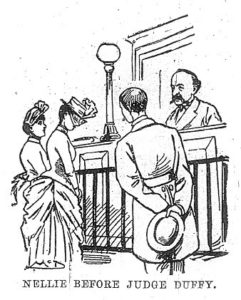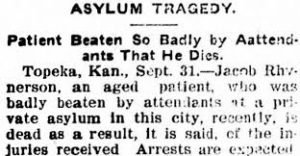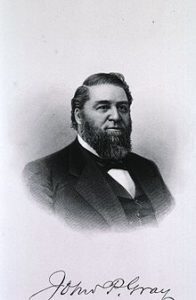
Investigative Reporter Nellie Bly Being Committed to an Asylum
Whether a supposedly “insane” patient really was or was not, the odds were not in his favor when it came to putting up a defense against commitment and treatment. One potent factor against patients was the almost automatic presumption that the diagnosis they suffered was correct. (See last post.) Another factor was the very real authority and influence of an asylum’s superintendent.
Superintendents almost never initiated a diagnosis of insanity unless a person were sent directly to an asylum because of dangerous or noteworthy actions that seemed to put the patient or society at risk. In that case, a superintendent or one of his staff might examine the person and decide whether or not he was insane. Otherwise, some sort of panel or set of doctors/judges made the diagnosis and sent the patient to the (usually) nearest asylum. This certainly gave an appearance of impartiality to the superintendent, who might then be presumed to have only the patient’s best interests at heart.
Reverend Hiram Chase (mentioned in my last post) noted that he had once spoken with a man whose wife had been in an asylum for a long time. Chase asked the man what he thought about “the propriety of keeping one so many years in an asylum.” The man essentially replied that the doctors were wise and skillful, the nurses and attendants well skilled, that “great care and patience were exercised over the patient, and that no stone was left unturned to soothe and comfort these unfortunate victims of insanity.”

Attendants Were Not Nearly So Patient and Skilled as the Public Supposed

Dr. John Gray was Superintendent of the Lunatic Asylum in Utica During Chase’s Commitment There
Chase cheerfully accepted this husband’s words on the topic. Later, he unfortunately found them to be patently untrue once he was, himself, committed to the Lunatic Asylum in Utica [New York]. Chase stayed there for a little over two years and afterward wrote a measured but unsparing account of his stay that should have made others fearful of too innocent a trust.